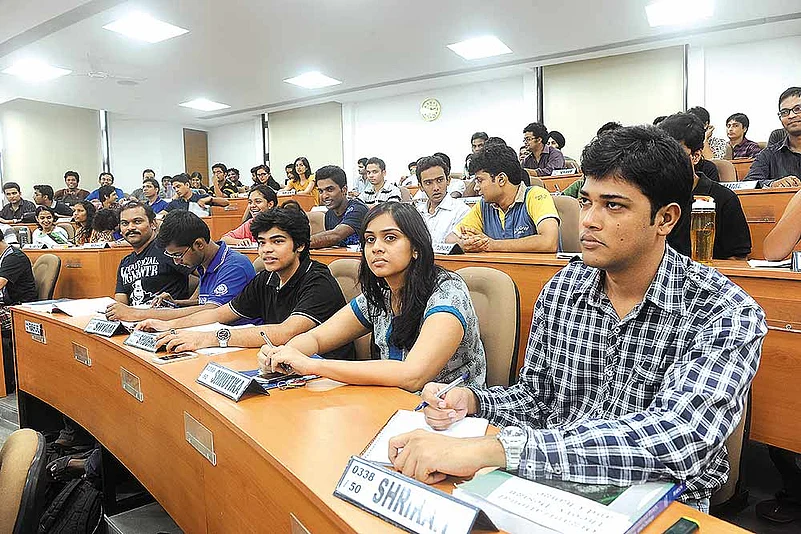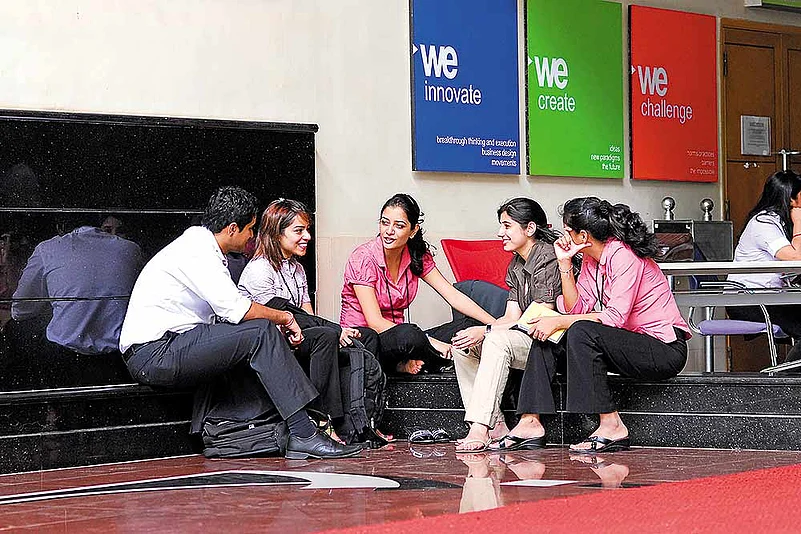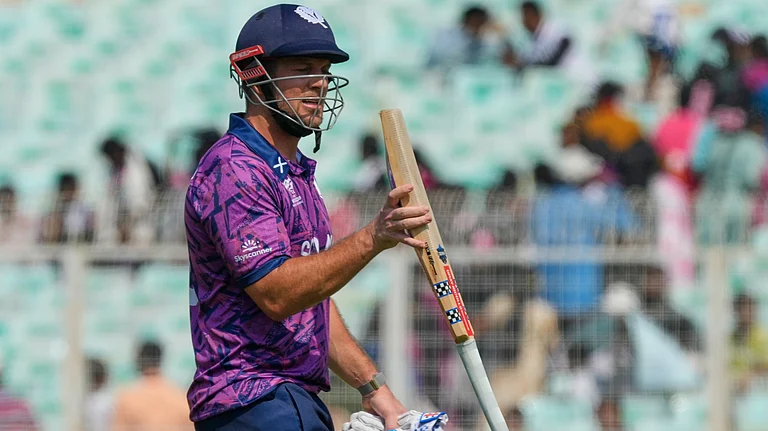Shortening product life cycles and constant evolution of international products and technologies are posing major challenges to businesses. Not just start-ups, but established businesses too are having to constantly evolve for keeping up with new trends in products, services and technologies. With innovation becoming a buzz word, going back to school to keep up with, if not go ahead of the curve, is seeing top managers and CEOs undertaking courses to acquire new skills—‘retooling’, in corporate jargon.
“Typically, people who have reached the corner office in large organisations would have done their MBAs in the 1970s and 1980s,” says Dr Farhan Pettiwala, president of Enactus India, a subsidiary of Enactus Worldwide, an international non-profit organisation of students with a focus on community empowerment through promotion of entrepreneurship. “They are extremely good at people skills, but struggle with technology, especially when it comes to the Internet of Things and Artificial Intelligence. So this aspect is missing in Indian education.”
The trend of CEOs and senior executives taking a sabbatical to study overseas has seen a shift over the past few years, with more and more Indian institutions such as the Indian School of Business (ISB) in Hyderabad, Telangana, and Mohali, Punjab, and a few among the IIMs looking at the issue of specialisation. Shikhar Mohan, chairman of OneYearMBA, says that unlike the two-year postgraduate programme targeting freshers, “the one-year courses offered in India are more relevant for those with work experience. Which is why business schools stress on at least five years experience for the one-year courses.”
For shorter refresher/specialisation courses for executives, 15 years of work experience is sought. These courses last from a few days to a couple of months. Given the felt need among executives to go back to school, various institutions in India are developing their own package of specialisation. Prof Moutusi Maity of IIM-Lucknow says the courses are being modulated with what is happening in the market and technology developments, like digital marketing, as otherwise it would not appeal to students.
Maity, who was earlier with IIM-Bangalore, says people who come back to school with work experience “help to add depth to the discussions by raising more practical issues and providing greater insights, which gets woven into the class discussions and debate.” Essentially, three kinds of people with experience come back to school: management cadre keen to keep abreast of new changes in their field, those seeking to reorient themselves for a change in job profile, and those who want to acquire the brand value of an MBA, particularly from IIM. But how far are the “retooling” courses on offer meeting market expectations?
“Very few institutes in India like ISB and IIM-B are offering courses in innovation, while courses in specialisation in data management and data analytics etc are being offered by many premier institutes such as IIM-Ranchi and IIM-Bangalore,” points out Mohan Tiwari, CEO and co-founder of Students’ Destination. “There are also many INStitutes offering short-term courses and certification in data analytics in collaboration with industry leaders like Dell and IBM.” Tiwari believes that degree courses in such disciplines can be designed in India “since we have the world-class intellect and industry interface it takes to make it happen.”
Pettiwala, however, is critical of the fact that most institutions are still relying on the case-study method of teaching, and not focusing adequately on research and retooling of faculty. The situation is unlike in some of the IITs, with their entrepreneurship cells, where faculty or domain experts from the corporate world are encouraged to come and teach students. “This is an aspect still missing in the Indian education system. We do have management development programmes in the IIMs, but they still rely a lot on case-study methods, whereas what we are talking about is the future. For example, Ivy League universities such as Harvard and Stanford go for more of experiential learning nowadays. Unfortunately in India, our institutions still do not understand experiential learning,” says Pettiwala.
Taking teaching out of the classroom, Enactus India encourages experiential learning through students’ interaction with communities. Working with over 160 institutions in the country, including the IITs and IIMs, Enactus encourages students to form groups or clubs that go to the communities and work with them, raising funds to help start businesses, be it social enterprises or for-profit enterprises. The challenges of starting an enterprise and keeping it afloat, besides being profitable, are growing every day. The cases of Flipkart and Snapdeal are among examples that readily come to mind about how market dynamics can suddenly change.
Prof Ajit Parulekar, director of the Goa Institute of Management (GIM), points to the World Economic Forum’s ‘Future of Jobs Report 2016’, which has talked about the top 10 skills required in 2020. “With the Industry 4.0 (the current trend of automation and data exchange in manufacturing technologies) focus, new developments are visible—advanced robotics, autonomous transport, Artificial Intelligence and machine learning—that will transform the way we operate. With these advancements, the future workforce will need to align its skill-set to keep pace. In this scenario, business schools also need to re-align their curriculum,” says Parulekar, adding that GIM has been striving to systematically build a rich learning environment through engagement with academia, industry and alumni, by focusing on sustainable business and an inclusive society under its GiveGoa initiative and a compulsory 4-credit course in the first-year of the PGDM programme.
Believing that creativity and innovation will be much sought-after skills in the future, GIM has a Centre for Creativity and a newly formed Centre for Innovation. The aim is to develop multiple intelligence using the arts, technology and management inputs, so students “see” solutions when none seems to exist. Striving to foster an innovation ecosystem, GIM has got a grant from NITI Aayog to set up an Atal Incubation Centre. To meet the new job market demands, it also offers elective courses in big-data management and analytics, materials management, IT consulting, HR analytics, technical analysis, predictive analysis, digital marketing and so on.

According to Prof Uttam Kumar Sarkar, dean (new initiatives and external relations) at IIM-Calcutta, managers with niche and focused expertise are often preferred in today’s world. “This is driving a large number of working professionals to take up management programmes in various specialised domains. To survive the challenging business environment and contribute effectively, managers and executives need to continuously hone their skills and upgrade their business acumen, to stay abreast of industry trends and leverage on the emerging opportunities. With the proven expertise of our faculty members, we encourage and inculcate a holistic participatory understanding of state-of-the-art business management principles and practices,” says Sarkar.
In a unique initiative, IIM-Calcutta has joined hands with the Indian Statistical Institute (ISI) and IIT-Kharagpur to craft a multi-disciplined and inclusive postgraduate programme in business analytics. The two-year degree course unites three realms—management, information technology, and statistical theories and applications—in order to produce industry-ready trained professionals. In addition, the IIM-Calcutta offers innovative management development programmes to meet the needs of the industry. Among such programmes are emerging leaders’ programme, managerial communication, oil economy, quality analytics, healthcare leadership and business analytics. These programmes address the increasing demand for trained professionals in the industry, who are capable of utilising the potentials of analytics in modern business.
At the current juncture, as businesses are relearning to cope with the ever emerging and changing market dynamics and technologies, many executives are still opting to do short-term online courses being offered by overseas players such as Stanford, Harvard and MIT Sloan. Given the huge potential in India, many of the foreign institutions have also forged alliances with Indian counterparts to woo executives eager to acquire new skills.


























